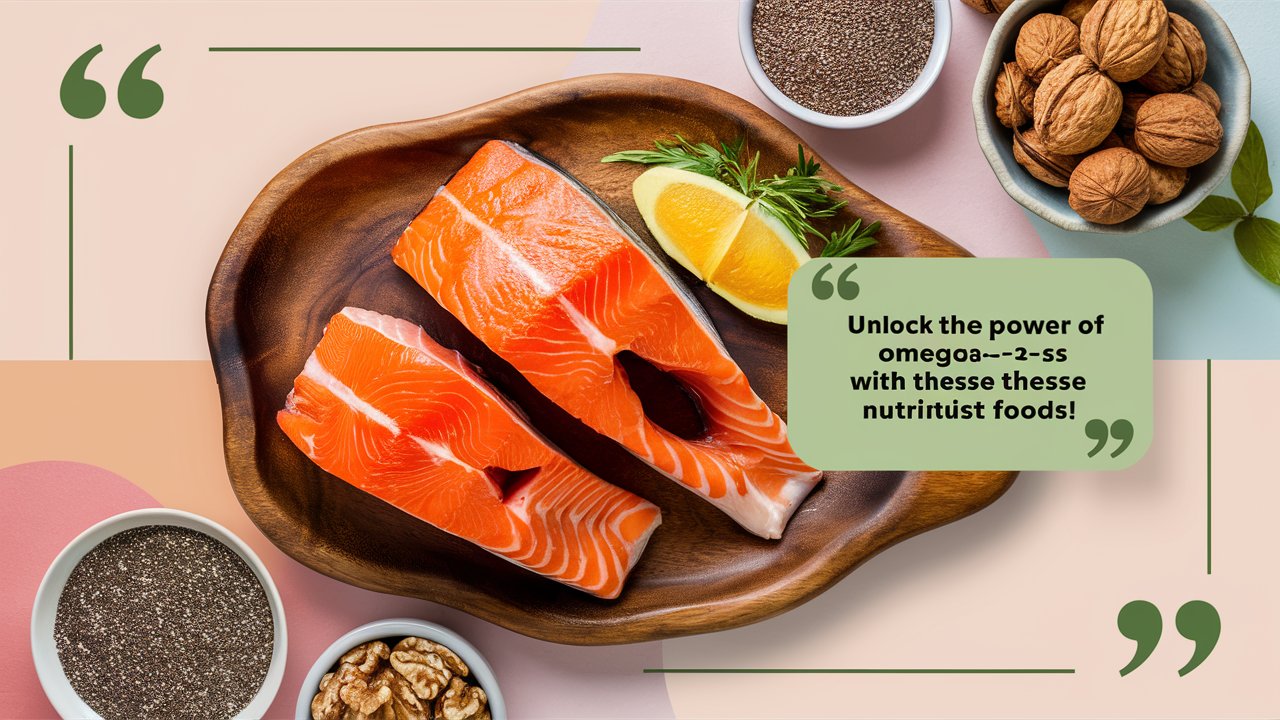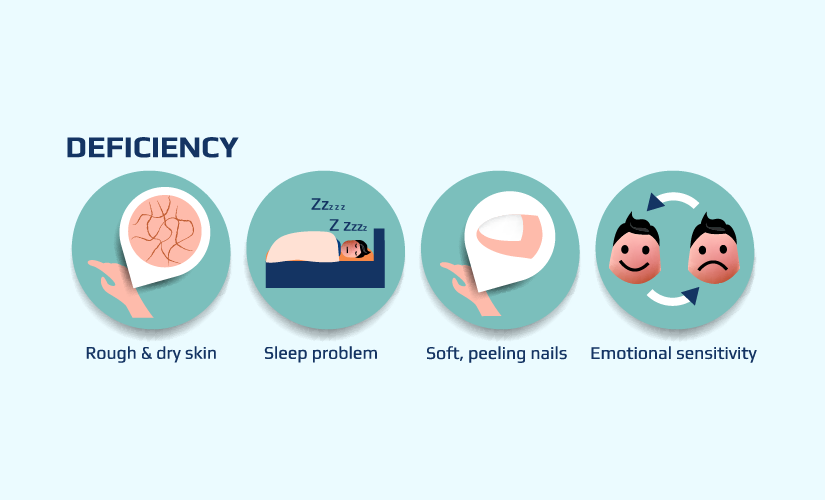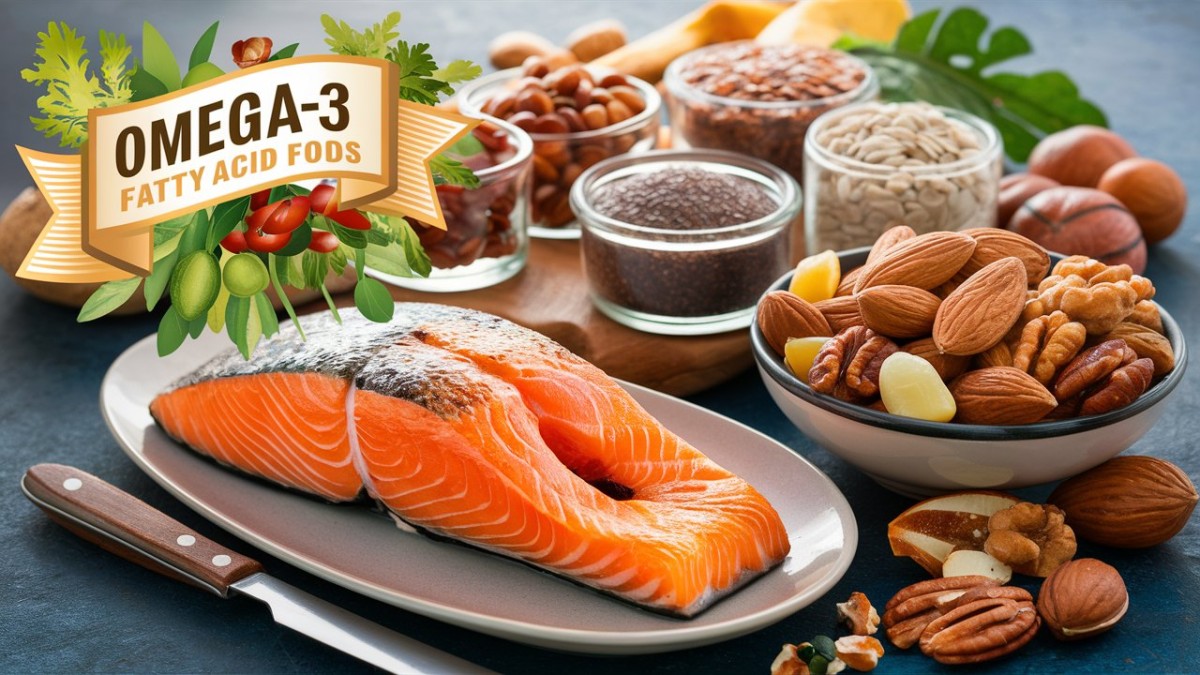The fats that are crucial for our well-being. They are referred to as "essential" because our bodies are unable to manufacture them, thus we need to obtain them from our diet. Polyunsaturated fats, also known as "healthy fats," help with a variety of functions in the body.
The three most important omega-3 fatty acids are EPA, DHA, and ALA. Various categories can be used for these oils. While ALA can be found in plant-based foods, fish remains the main source of EPA and DHA.
It is essential to include EPA and DHA from dietary sources since the body can only synthesize them minimally from ALA.
Omega-3 fatty acids are a crucial component of the composition of each cell in our body. Our cells work correctly, providing our bodies with energy, and supporting the health of various body systems. They are primarily found in large numbers in the cells of our eyes and brain.
Sources of omega-3:
Sources of omega-3 include
 Salmon: Additionally Known for its pink tissue, salmon is one of the rich sources of omega-3.
Salmon: Additionally Known for its pink tissue, salmon is one of the rich sources of omega-3.
Mackerel: This sleek fish is flavorful and loaded with omega-3 unsaturated fats.
Tuna is mostly in salads and sandwiches, providing a good amount of omega-3 fatty acids.
Sardines: These tiny, sleek fish are a rare source of omega-3.
Nuts and seeds have elevated amounts of Omega-3 fatty acids. Some of them are made up of crushing flaxseeds and incorporating them into various dishes can help boost omega-3 intake.
Chia seeds are a good source of omega-3 fatty acids and have an excellent water-soluble nature
Walnuts are rich in both omega-6 and omega-3 fatty acids.
Flaxseed Oil The oil that is produced from flaxseeds is rich in omega-3 fatty acids and is one of the most abundant sources of these essential lipids in plants.
Important Things About Omega-3 Fatty Acids
Omega-3 unsaturated fats are huge for our prosperity for an enormous number of reasons.
➤Omega-3 unsaturated fats are huge for our prosperity for an enormous number of reasons.Omega-3 unsaturated fats have an important effect on maintaining the healthy functioning of the heart and blood vessels. They can reduce the risk of heart disease by lowering cholesterol and blood pressure. In addition, they can reduce the chance of irregular heart rhythms, which can lead to serious heart disease. Research has shown that Omega-3 unsaturated fats can help prevent strokes. They accomplish this by neutralizing the game plan of hurting blood get-togethers and hacking down blood fat levels.
➤Including omega-3 fatty acids can help manage autoimmune conditions such as lupus and rheumatoid arthritis. Also, it can help with skin issues like dermatitis.
➤Also research studies report that omega-3 fatty acids could help prevent the growth of cancer. Further research is essential to fully understand the potential benefits.
Sources of omega-3 derived from plants
Vegetarians can find plenty of omega-3 fatty acids in various plant-based sources such as:
 ➤Ground flaxseeds can be used to boost the nutritional value of baked foods, smoothies, and oatmeal due to their nutty taste.
➤Ground flaxseeds can be used to boost the nutritional value of baked foods, smoothies, and oatmeal due to their nutty taste.
➤Chia seeds are an excellent source of omega-3 because they can create a gel texture. They can be used in desserts, cocktails, or as an egg substitute in baked goods.
➤Pecans: These intellect-shaped nuts are flavorful as well as stacked with omega-3 unsaturated fats. They can be eaten unrefined, cooked, or included in dishes like sweet and mixed greens plates.
➤Hemp Seeds: These little, hearty-hued seeds are high in omega-3 unsaturated fats and can be added to yogurt, heated merchandise, or plates of leafy greens.
➤Some specific kinds of seaweed, particularly those used to make algae supplements, are high in omega-3 fatty acids. For vegans and those who love vegetables, it's a definite choice to get this essential nutrient.
Recommended daily nutritional consumption:
➤Omega-3 fatty acids, specifically EPA and DHA, are essential nutrients for achieving and keeping up good health Most wellbeing associations propose a day-to-day admission of 250-500 mg of EPA and DHA for solid grown-ups. This proposal is certainly not a one-size-fits-all methodology, but instead a basic principle. Individual requirements might change, and it's in every case best to talk with a medical services supplier for customized exhortation.
➤The essential supplements Omega-3 and Omega-6 unsaturated fats play important roles in our bodies and cannot be produced internally, making it necessary for us to obtain them from our diet. The heart and brain are the primary organs that benefit from omega-3 fatty acids. They help in the upkeep of cardiovascular well-being by further developing heart musicality and diminishing the probability of blood clusters. They additionally support mind well-being, adding to memory and execution, and possibly in any event, offering assurance against mental issues. Moreover, Omega-3 unsaturated fats have calming properties. They assist with controlling irritation in the body, which can prompt a decrease in enlarging and torment related to specific circumstances. Omega-6 fatty acids, on the other hand, have a significant impact on skin health. They help maintain youthful, hydrated skin by aiding in the normal lipid barrier of the skin. Omega-6 fatty acids are also involved in reducing LDL cholesterol, commonly known as the "bad" cholesterol, in our bodies. Consequently, heart health, in general, gets better.
Sources of omega 6:
A vital type of supportive fat necessary for the body to function properly is omega-6 unsaturated fats. They are present in different food varieties, which can be categorized into the following groups.
Vegetable Oils: A plentiful source of omega-6 polyunsaturated fats is provided by vegetable oils. Some oils that have high levels of these beneficial fats are comprised of.
➤Cotton seed oil comes from corn seeds and is well-known for its high omega-6 fatty acid content. Cottonseed Oil comes from the seeds of the cotton plant and has elevated levels of omega-6.
➤Peanut oil is obtained by pressing peanuts and serves as a valuable source of omega-6. Soybean seeds are used to extract soybean oil, which is rich in omega-6.
➤Sunflower Oil: Extracted from sunflower seeds, this oil is famous for its high omega-6 content.
Nuts and Seeds: Some nuts and seeds are rich in Omega-6 fatty acids. Some examples are:
➤ Walnuts are bountiful in omega-6 unsaturated fats and are perceived for their advantages in supporting mental capability.
➤Sunflower seeds are much of the time chosen as nibble because of their high omega-6 substance often selected as a snack due to their high omega-6 content.
➤Omega-6 unsaturated fats can likewise be found in creature-based food varieties like poultry and eggs. Increasing your omega-6 fatty acid intake may be made easier with these food options.
Omega-3 vs. omega-6:
Omega-3 and Omega-6 unsaturated fats are both crucial enhancements that are critical parts of our bodies. They are referred to as "essential" because our bodies are unable to produce them on their own. As a result, we must consume them through our diet. The heart and brain are the primary organs that benefit from omega-3 fatty acids. They help in the upkeep of cardiovascular well-being by further developing heart musicality and diminishing the probability of blood clusters. They additionally support mind well-being, adding to memory and execution, and possibly in any event, offering assurance against mental issues. Also, omega-3 unsaturated fatty acids have calming effects. They help control irritation in the body and can reduce the stretch marks and torment associated with specific conditions. However, Omega-6 fatty acids have a profound effect on skin health. They help maintain a healthy skin lipid barrier, which is necessary to maintain hydrated, youthful skin Omega-6 fatty acids easily also play a role in lowering LDL cholesterol or "dangerous" cholesterol in our bodies. After that, heart wellness in general gets to the next level.
Severe Omega-3 Deficiency:
 If someone has a severe omega-3 deficiency, it means their body is not getting enough omega-3 fats. Health issues may arise due to it like Skin problems such as acne, dermatitis, and lesions, a weakened immune system or loss of antibodies can be signs of omega-3 deficiency. Those who suffer from omega-3 deficiencies in the long term may experience significant health consequences, including cardiovascular issues, elevated cholesterol levels, cognitive impairment, and memory loss.
If someone has a severe omega-3 deficiency, it means their body is not getting enough omega-3 fats. Health issues may arise due to it like Skin problems such as acne, dermatitis, and lesions, a weakened immune system or loss of antibodies can be signs of omega-3 deficiency. Those who suffer from omega-3 deficiencies in the long term may experience significant health consequences, including cardiovascular issues, elevated cholesterol levels, cognitive impairment, and memory loss.
Omega-3 and Drug interaction:
Omega-3 can interact with some medicines. For example, if you take a lot of omega-3, it can cause bleeding problems if you also take medicine like warfarin (Coumadin). Always ask your doctor about omega-3 and your medicines.
Read more on diet
In essence, the journey towards a healthier life is significantly influenced by our dietary choices. Prioritizing the consumption of Omega-3-rich foods is a step in the right direction, a step towards a healthier, more vibrant life. Remember, every bite counts when it comes to nurturing our bodies, and Omega-3 fatty acids are an essential part of that nourishment. So, let’s make a conscious effort to include them in our meals, for our health’s sake.
